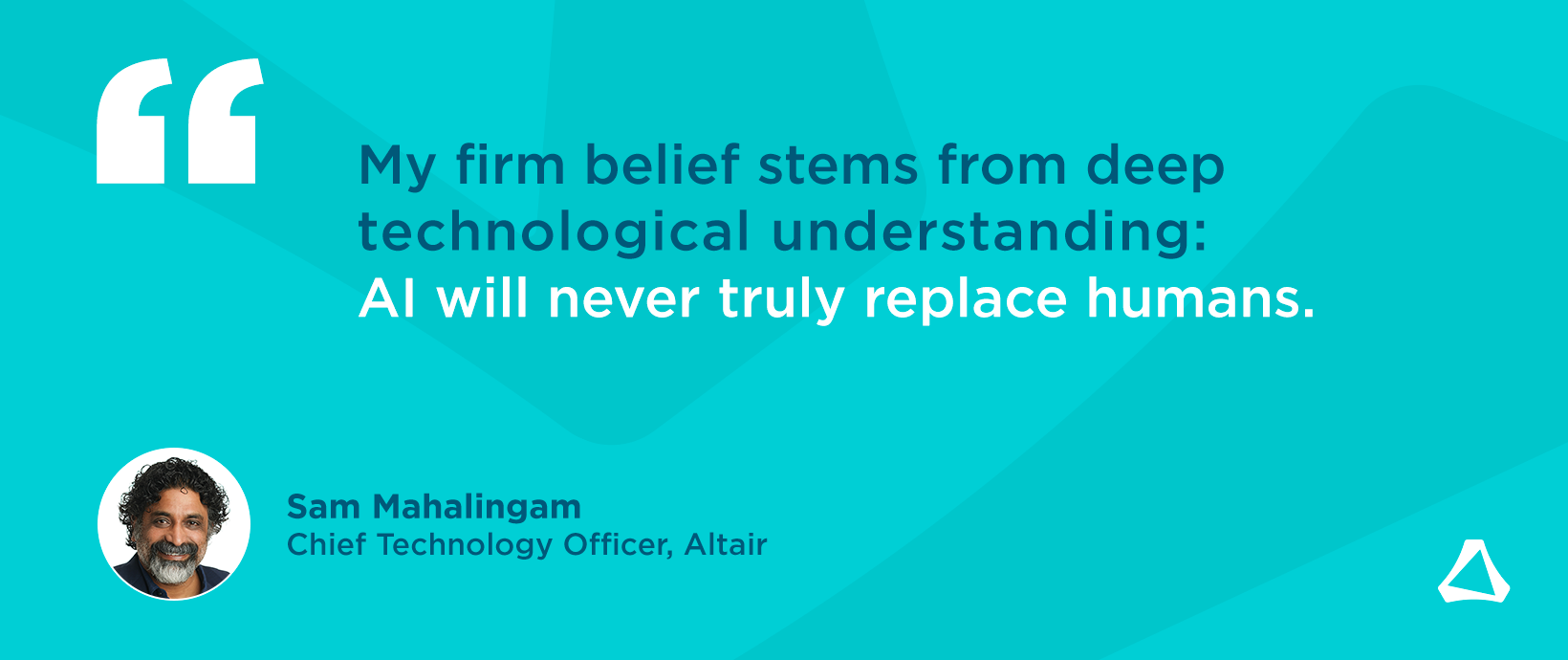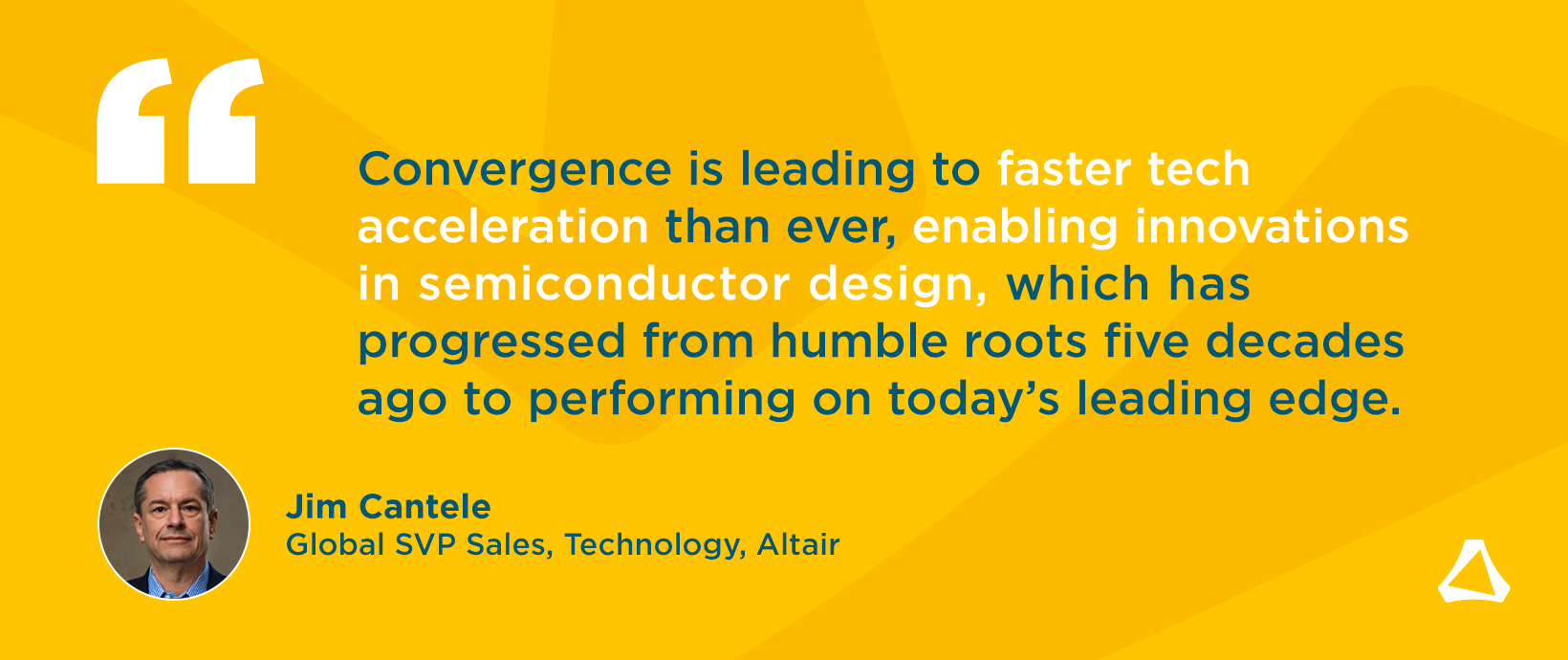Taking the Difficult Out of Data Analytics

Natural language processing (NLP) is already part of the fabric of everyday life. Amazon Echo and Google Home have quickly become embedded in the domestic landscape. A little less obviously, NLP is also helping to make sense of our online searches and engaging us in ‘human’ conversation via chatbots. Given the impression it has made on the mainstream, it is not really a surprise to find that NLP-enabled conversational analytics is one of the next big things in data analysis. The impact will be profound.
Of course, at Altair we’ve never believed that data analytics should be difficult. Altair Knowledge Works™, our comprehensive solution for data preparation, data science, machine learning (ML), as well as stream processing and visualization, is founded on principles of accessibility and usability. It is the first open architecture, end-to-end data analytics platform, enabling forward-thinking organizations to more profoundly understand the past and better shape their future. Consequently, it addresses some of the most critical challenges faced by enterprises and organizations.
Consider a few figures. At the moment, a mere 12% of all enterprise data is used to make business decisions. Only 29% of businesses are successful at connecting analytics to action. And one in five enterprises believe they have lost customers due to using incomplete or inaccurate data. Moreover, while ML is widely acknowledged as key to overcoming these failings, a staggering 96% of enterprises admit to struggling with aspects of the technology.
Knowledge Works is already helping many organizations squeeze more value from their data, enabling employees to spend their time solving problems, not creating code. Conversational analytics represents another huge step forward on that journey. Democratization will occur when data analysis tools are as easy to use as a search engine interface (by leveraging NLP first) and then mature to voice-activated virtual assistants seamlessly augmented into existing solutions.
Gartner predicts that, as soon as next year, conversational analytics will grow adoption of analysis and business intelligence from 35% to more than 50% of employees. That’s an important boost for the fast-growing people’s army of citizen data scientists and developers.
For all its complexity and sophistication, there is a simple reason why conversational analytics is significant. The more people are given the means to mine and cross-examine data, the more likely it is that they will pose the critical questions and generate compelling answers. In a relentlessly dynamic market, that needle in the haystack could represent a vital competitive edge. Perhaps even the difference between success or failure.
Learn more about Altair’s data analytics solutions here.




